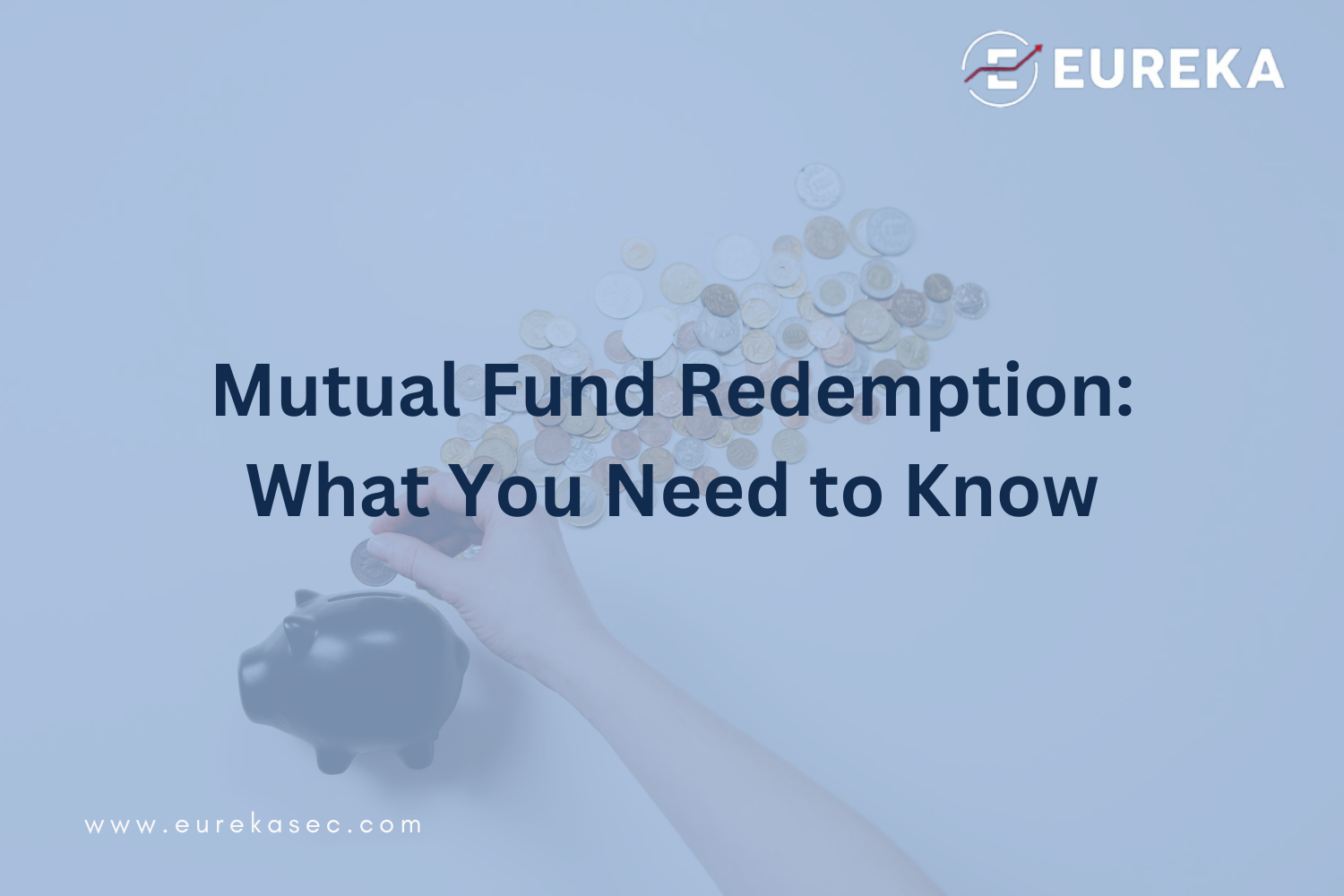
The investment world is vast, encompassing a plethora of options tailored for different kinds of investors. One of the most prevalent investment avenues is mutual funds. While purchasing mutual funds has been heavily discussed, there’s another aspect equally significant but less talked about, Mutual Fund Redemption. This piece aims to shed light on this crucial process, guiding you through its intricacies.
Understanding Mutual Fund Redemption
At its core, Mutual Fund Redemption refers to the process where an investor sells their mutual fund units back to the fund house or Asset Management Company (AMC). This action translates to converting part or all of one’s investment back into cash based on the current Net Asset Value (NAV) of the fund.
The Significance of Timing
While the decision to buy a mutual fund is important, when and how to redeem mutual fund can be equally consequential. Optimal timing, influenced by factors like market health, the specific fund’s performance trajectory, and personal financial goals, can be the difference between profit maximization and unfortunate losses.
Redemption Options
Investors are typically presented with two primary Mutual Fund Redemption choices:
- Full Redemption: As the name suggests, this involves selling all the units you hold in a specific mutual fund.
- Partial Redemption: Here, only a portion of the units are sold, allowing the remaining to potentially appreciate in value.
The decision between these should align with your immediate financial requirements and long-term investment outlook.
Charges on Redemption
Before proceeding with a Mutual Fund Redemption, it’s essential to acquaint oneself with potential charges. These could be in the form of exit loads, which are fees charged by the fund house if units are redeemed before a specified period. Always review the fund’s terms to avoid unexpected costs.
Tax Implications of Mutual Fund Redemption
The decision to redeem mutual funds doesn’t solely revolve around market performance and financial needs; there are crucial tax implications that every investor should be aware of. These taxes can considerably impact the overall returns, and hence, understanding them is paramount.
- Short-Term vs Long-Term Capital Gains: The duration for which you hold your mutual fund units determines the type of capital gains tax applicable. If you redeem your equity mutual fund units within a year of purchase, any profit made is classified as short-term capital gains (STCG). However, if held for more than a year, they fall under long-term capital gains (LTCG). The tax rates differ for both. Debt funds, on the other hand, are considered short-term if held for less than three years and long-term if held beyond that.
- Dividend Distribution Tax (DDT): While the main focus is often on capital gains, it’s also essential to consider the implications of DDT if you’ve invested in the dividend option of mutual funds. The tax treatment for dividends might vary, and understanding this can aid in better financial planning.
- Loss Offset: Not all Mutual Fund Redemption results in gains. In cases of losses, investors can offset these against other capital gains. For instance, short-term losses can be offset against short-term and long-term gains, providing a silver lining during unfavourable market phases.
- Top of Form
Mutual Fund Redemption Process:
Navigating the Mutual Fund Redemption Process might seem intimidating for beginners. But with the right insights, it’s a breeze. Here’s a quick rundown:
- Digital Mutual Fund Redemption: Modern AMCs streamline redemptions with user-friendly online platforms. Just log in, select your fund, specify units, and submit.
- Offline Method: Prefer paper? Visit the AMC branch, fill out a Mutual Fund Redemption Form, and hand it in. It’s traditional and still valid, though less prevalent now due to its lengthier process.
- KYC Verification: Always keep your KYC details updated, regardless of the Mutual Fund Redemption Process, to prevent any delays.
- Direct vs Regular Plans:The process can vary based on your investment plan. Know if you’re direct (with the AMC) or regular (via an intermediary) and act accordingly.
- Acknowledgement: Post-redemption request, expect an acknowledgement through email, SMS, or a receipt as a record.
- Bank Details: Mutual Fund Redemption gets credited to the linked bank account. Double-check its accuracy and activity to ensure seamless transfers.
Settlement Duration
After placing a Mutual Fund Redemption request, a waiting period ensues before the amount reflects in your account. Typically, equity funds take about 1-3 working days, while debt funds might be quicker. It’s always good to know this duration, especially if you have impending financial commitments.
Considerations in a Volatile Market:
Markets are inherently unpredictable. During volatile phases, the impulse might lean towards redeeming mutual funds to prevent further losses. However, remember that market cycles exist. A downturn today could be a precursor to an upswing tomorrow. Unless necessitated by urgent financial needs, consider holding onto your investments during volatile periods.
Regulatory Safeguards:
To ensure investor interests are always front and center, mutual funds are governed by stringent regulations. These norms guarantee that your Mutual Fund Redemption process is seamless and transparent. Regularly checking for regulatory compliance can ensure you’re in safe hands.
Post-Redemption Strategies:
Once you’ve redeemed your mutual funds, the immediate thought is about the utilization of these funds. Whether it’s reinvesting in another avenue or catering to financial needs, always have a post-redemption strategy. This ensures your money is always working for you, irrespective of its form.
In the ever-evolving landscape of investments, mutual funds remain a popular choice for many due to their potential returns and diversification benefits. However, as with any financial instrument, it’s essential to grasp the mechanics of the process, especially when it’s time to exit. The Mutual Fund Redemption process, while straightforward, requires an understanding of various steps and considerations, from KYC verification to the implications of exit loads. Armed with the right knowledge, investors can ensure they navigate this process smoothly, optimizing their returns and minimizing any potential hitches.
If you’re still feeling uncertain or looking for tailored advice, don’t hesitate to reach out to Team Eureka, your trusted financial guide. With our expertise, you can make informed decisions that align with your financial aspirations. Dive deeper into the world of investments with Eureka by your side!







